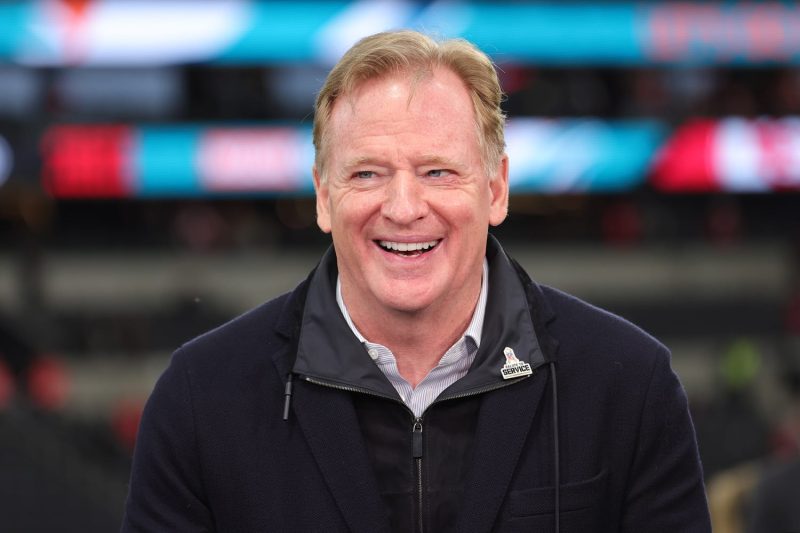
NFL Commissioner Roger Goodell Reveals Exciting Opportunity for Private Equity Owners to Join Teams
The National Football League (NFL) has been a pioneering force in the world of professional sports, setting trends and making groundbreaking decisions that shape the landscape of the industry. In a recent announcement, NFL Commissioner Roger Goodell revealed that the league is open to the possibility of private equity firms owning up to 10% of NFL teams. This move could have far-reaching implications for the league and its future trajectory.
Private equity ownership in professional sports is not a new concept, with several leagues already having embraced this model to varying degrees. However, the NFL has traditionally been more conservative in its approach to ownership, with stringent ownership rules in place to maintain the integrity and stability of the league. The prospect of opening up team ownership to private equity firms represents a significant shift in the league’s business strategy.
One of the key reasons behind the NFL’s willingness to consider private equity ownership is the potential for increased investment and financial stability. Private equity firms bring with them substantial financial resources and expertise in managing and growing businesses. By allowing them to acquire stakes in NFL teams, the league could benefit from the injection of fresh capital and strategic business insights that could help drive growth and innovation.
Moreover, private equity ownership could also lead to greater diversity and specialization within NFL ownership groups. Private equity firms often have deep industry knowledge and specialized skill sets that can complement the existing strengths of team owners. This diversity of perspectives and expertise could enhance the overall management and decision-making processes within NFL teams, leading to improved performance both on and off the field.
However, the prospect of private equity ownership in the NFL also raises concerns and challenges that need to be carefully considered. One of the primary concerns is the potential for conflicts of interest and undue influence on team operations and decision-making. Private equity firms are profit-driven entities, and their priorities may not always align with the long-term interests of the league or its fans. Balancing the financial benefits of private equity ownership with the need to uphold the integrity and values of the NFL will be a critical task for league officials.
Another potential challenge of private equity ownership is the impact it could have on team culture and fan loyalty. Traditional team owners often have deep roots in their communities and a strong emotional connection to their teams. Private equity ownership, with its focus on financial returns and short-term gains, could change the dynamics of team ownership and lead to a more corporate and profit-driven approach. Maintaining the unique identity and values of NFL teams in the face of private equity ownership will require thoughtful management and a clear commitment to preserving the essence of the league.
In conclusion, the NFL’s willingness to explore private equity ownership of up to 10% of its teams represents a significant milestone in the league’s evolution. By opening the door to private equity firms, the NFL has the opportunity to leverage new sources of investment and expertise that could drive growth and innovation in the league. However, the potential challenges and risks associated with private equity ownership must be carefully managed to ensure that the integrity and values of the NFL are upheld. As the league continues to navigate the complex landscape of professional sports, the decision regarding private equity ownership will play a pivotal role in shaping its future trajectory.
